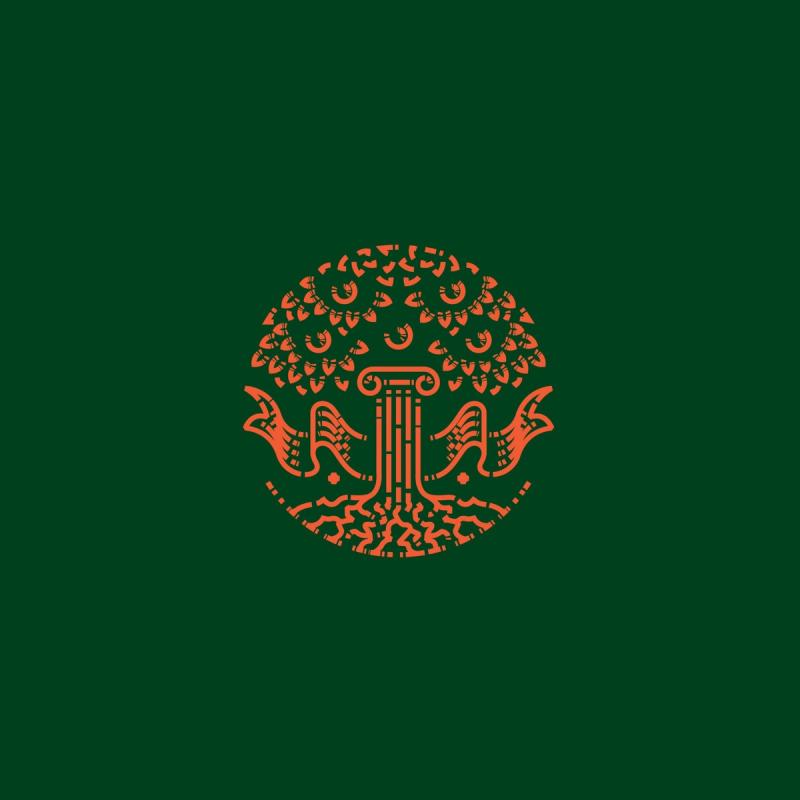What hath the Reformation to do with stoves? In 1550, Alsatian Reformer Martin Bucer prepared a gift for the Protestant King of England, Edward VI: his monumental book De regno Christi or Kingdom of Christ. Bucer had much for which to be thankful. He had been exiled from Strasbourg the year before, when various rites and ceremonies of the Roman Catholic Church were reimposed by force on many central European Protestants under what became known as the “Augsburg Interim.” England offered him not only sanctuary but also the prestigious position of Regius Professor of Divinity at the University of Cambridge. When Bucer experienced ill health from the damp English winter, Edward VI gave him money so that he could manufacture a special stove to heat his residence.[1] This last royal kindness served as the final trigger for Bucer’s sending the book when he did, though it was not quite finished.
Bucer spared no expense in producing the beautiful presentation copy. The two volumes were exquisitely bound and ornately inscribed with biblical quotations in the languages of scholars—Latin, Greek, Hebrew. Each quotation was printed in gold through techniques then unknown in England and carefully chosen to reinforce Archbishop of Canterbury Thomas Cranmer’s identification of young King Edward VI as a “new Josiah.”[2] In fact, Bucer spent so much on the text’s production—and on another stove for his home—that he was unable to pay the secretary who had copied De regno Christi for him and had to ask a Cambridge colleague for a loan to buy his secretary a coat.[3]
The book did not become the charter of the Reformation in England as Bucer had hoped, and it was only posthumously published in 1557. Like all his works, he wrote it hurriedly—both as a retrospective of his career and an attempt to help the church in England define itself. The first part of it described what he believed the kingdom of Christ looks like in biblical, theological, practical, and historical terms. The second part proposed how the English king could establish total reform of church and society. To modern readers, there are oddities: for example, one-fourth of the book is devoted to the institution of marriage. Yet Bucer left an extraordinary impress on Protestant Christianity.
In 1518, Bucer had heard Martin Luther’s famous Heidelberg Disputation as a young friar in the Dominican monastery. Eventually, he himself became the major Reformer in the strategic city of Strasbourg. Particularly intriguing is how the Reformation caught fire there, at least in part. In Wittenberg, Luther had attacked the medieval sacrament of penance. In Zurich, Huldrych Zwingli had confronted the medieval Lenten fast. In Strasbourg, Bucer and preachers Matthäus Zell and Wolfgang Capito opposed the medieval prohibition on clerical marriage. In each case, the Reformers returned to the sufficiency and authority of Scripture as the only rule for faith and life.
From Strasbourg, Bucer demonstrated his unmatched skill as an administrator. He built and thrived on networks of personal contacts from every corner of Europe to push and prod reform. As the great “theologian of dialogue,” he was instrumental in bringing together Luther and Zwingli to discuss their differences at the Marburg Colloquy in 1529, encouraged Anabaptists to return to the magisterial Reformation, and was no less active in significant meetings between Protestants and Roman Catholics in the German towns of Worms and Regensburg.[4] He wrote remarkably influential commentaries on the Psalms and Romans, a wise treatise on pastoral ministry, Concerning the True Care of Souls, and more.
He was also prone to ramble. Heinrich Bullinger, Zwingli’s successor in Zurich, once quipped that Bucer’s letters were too long even to skim.[5] At Luther’s dinner table, when someone read a text cowritten by Bucer and Philip Melanchthon but withheld the names of the authors, Luther interrupted, “I detect that babbler Bucer.”[6] Even John Calvin formulated his literary ideal of “lucid brevity” largely in opposition to the Strasbourg Reformer’s wordiness and complained that Bucer was “over active.”[7] Clearly, not every attempt at conversation was successful. One can almost hear an audible sigh even in Bucer’s own report of his long-term efforts to talk through disagreements over the presence of Christ in the Lord’s Supper: “I rolled Sisyphus’s stone.”[8]
Though Bucer briefly found safety as a refugee in England, he was also isolated. In an attempt to support him, Calvin poignantly wrote:
The Spirit of God, like a most brilliant torch, or rather like the sun itself, shines in full splendor, not only to guide the course of your life, even to its final goal, but also to conduct you to a blessed immortality. Draw then from this source, wherever you may wander, and as soon as he finds you a settled abode, you ought to make that your place of rest.[9]
Such words—from one exile to another—carried real weight. Even more, Calvin had long hailed Bucer as his father in the faith, despite their clashes. When Calvin had ministered in Strasbourg between 1538 and 1541, Bucer had been his mentor. Calvin lived first in Bucer’s house and then nearby, close enough to share a garden, where they passed many evenings deep in conversation. When Calvin subsequently returned to Geneva, his fourfold office of ministry, the liturgy, and church discipline all reflected Bucer’s teaching. He adopted Bucer’s understanding of the early church as a model for the organization of the church in the sixteenth century, and he often commended Bucer as one of the most brilliant readers of Scripture.[10] When Bucer died in 1551, Guillaume Farel wrote to Calvin:
I have received pious Bucer’s last letter. What a heart! What a man has gone! We must rejoice in our sorrow that a man so fond of us has journeyed to God. I have no doubt that after his journey he commended us to God. How rightly he thought of you and how justly he loved you![11]
Although few today know the name Bucer, nearly everybody in the first part of the sixteenth century knew him as one of the most active and influential churchmen in Europe—the master, perhaps, of his own kind of fireside chat.
Zachary Purvis (DPhil, University of Oxford) is lecturer of church history at Edinburgh Theological Seminary.
2. Benjamin Pohl and Leah Tether, “Books Fit for a King: The Presentation Copies of Martin Bucer’s De regno Christi” (London: British Library, Royal MS. 8 B. VII); Johannes Sturm, De periodis (Cambridge: Trinity College, II.12.21; London; British Library, C.24.e.5); Electronic British Library Journal (2015), art. 7, 1–35; Diarmaid MacCulloch, Tudor Church Militant: Edward VI and the Protestant Reformation (London: Penguin, 1999), ch. 2.
3. Bucer to John Cheke, October 21, 1550, in J. A. Giles, ed., The Whole Works of Roger Ascham, vol. 1/2 (London: 1864), 215.
4. Martin Greschat, Martin Bucer: A Reformer and His Times, trans. Stephen E. Buckwalter (Louisville: Westminster John Knox Press, 2004), 252.
5. Bruce Gordon, Calvin (New Haven: Yale University Press, 2009), 105.
6. Greschat, Martin Bucer, 199.
7. John Calvin to Guillaume Farel, September 24, 1557, in Ioannis Calvini opera quae supersunt omnia, ed. G. Baum, E. Cunitz, and E. Reuss, vol. 16 (Brunswick: Schwetschke, 1877), 638–39.
8. Bucer to Peter Martyr Vermigli, June 20, 1549, in Martini Buceri Scripta anglicana fere omnia, ed. Conrad Hubert (Basel: 1577), 547.
9. Calvin to Bucer, February 1549, in Letters of Jean Calvin, ed. Jules Bonnet, trans. David Constable, 4 vols. (Edinburgh, 1855–1857), 2:198–99.
10. See, e.g., Calvin to Heinrich Bullinger, March 12, 1539, in Letters, 1:114; Calvin, Commentary on the Book of Psalms, trans. James Anderson, vol. 1 (Edinburgh: 1845), xxxv; Calvin, Romans and Thessalonians, ed. David W. Torrance and T. F. Torrance, vol. 8 (Grand Rapids: Eerdmans, 1960), 2.
11. Farel to Calvin, May 25, 1551, in Preserved Smith, “Some Old Unpublished Letters,” Harvard Theological Review 12 (1919): 212.






